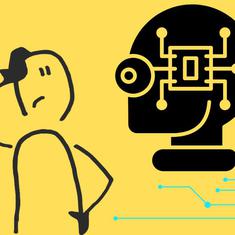The passing away of “Bekal” Utsahi on December 3, 2016 has gone virtually unnoticed in our press and other media. The one notable exception was a full-page feature in the Hindi daily Hindustan in its Sunday edition on December 4, which comprised a personal tribute and memoir from a fellow poet, Wasim Barelvi, the full text of one long poem by Bekal, and extracts from several others of his poems.
Nehruvian laureate
Mohammad Shafi Khan “Bekal Utsaahi” (1928-2016) first attracted notice in the 1960s as a flag-bearer of the idealistic Nehruvian agenda of secularism and national integration: “Dharam mera Islam hai, Bharat janamsthan/ Wazu karoon Ajmer mein, Kashi mein (a)snaan.” (“My faith is Islam, Bharat is my land of birth / In Ajmer I perform my ritual ablutions, in Kashi I take a holy bath.”) He was recognised and rewarded for this bold stance by successive Nehru-Gandhi governments.
After listening to Bekal recite a poem at a public meeting, Nehru described him as an “utsahi shair” – an enthusiastic or fervent poet, a compliment borne by Bekal ever after as a badge of honour. Indira Gandhi honoured him with a Padma Shri in 1976, and Rajiv Gandhi nominated him to the Rajya Sabha in 1982.
That phase of idealistic nation-building and “Ganga-Jamuni tehzeeb”, or composite cultural formation, is now well and truly gone, having given way to identity politics of all kinds of divisive shades, which Bekal went on to denounce. Eclectically enough, he called Atal Bihari Vajpayee a friend – as he too was a poet!
Linguistic syncretism
Bekal had a highly self-aware sense of what kind of a poet he himself was. He claimed descent not from the classics of Urdu such as Mir, Momin or Ghalib, but from Nazir Akbarabadi (a people’s poet who had written in simple accessible language about “Kanhaiya-ji” and Guru Nanak and the festival of Holi). “Suna hai Momin-o-Ghalib na Mir jaisa tha/ Hamare gaon ka shaayar Nazir jaisa tha.” (“I’m told it wasn’t Momin or Ghalib or Mir / But Nazir whom our village poet was like.”)
He also said he was in the line of the Hindi poet Kabir and, even more strikingly, wished to write like Raskhan, the Muslim Krishna-worshipping braj-bhasha poet of the 16th-17th centuries, who was one of the sweetest and the most melodious of all devotional Hindi poets. (“Geet mera ban jaye Kanhaai/ Phir mujhko Raskhan bana de.”) Has any other Urdu poet made such an extended claim to a common Hindu-Muslim Hindi-Urdu poetic inheritance?
Accordingly, Bekal’s diction was a mix of Urdu and Hindi to an extent not attempted before. In the same she’r, he could use unusual pairs of words such as “itihas” and “afsane,” or “loktantra” and huqoomat,” or “maanav” and “darwaze.” He thus brought down the wall between Hindi and Urdu to an extent that even Premchand or “Firaq” Gorakpuri had not able to do in their times.
But even more innovative were some verses he wrote in Avadhi, to go with his assertion that he was a ganwaar, a villager – a fact not negated by the circumstance that he was not a peasant but a zamindar’s son and carried himself with khandani (well-bred) elegance. In Avadhi, he wrote not only in the doha metre, which some other Urdu poets from both India and Pakistan have adopted as well in recent years, but he also attempted some chaupai’s, the emblematic Avadhi metre in which the great early epics in Hindi were written – by Tulsi Das, of course, but even before him by Malik Mohammad Jaayasi and some other Muslim poets.
Sophistication and spontaneity
While re-reading Bekal Utsaahi now (and what an unconventional double takhallus that was!) and listening to some of his mushaira videos on YouTube, the one line that has struck me the most and will stay with me is in Avadhi and exploits the idiomatic potential of the language to the utmost. It goes: “Unke phoolan se charanan ka bhauran banab / Unke gun gungunaibe jidhar jaibe ham.” (I’ll be the bee at her flower-like feet/ I’ll buzz, humming her praises where I go.)
The naazuk poetic fancy here, and the lovely pun and alliteration in the second line, are unprecedented even in the Hindi poetry of the long riti period, even as they add the flower-and-bee image to the Urdu repertoire of shama and parvana.
Bekal Utsaahi may not have been a great poet, but he was certainly an original who went where no Urdu or Hindu poet had dared to go before. To the canonical courtly sophistication of Urdu, he added a spontaneous informal earthy touch. And furthermore, he reaffirmed and revalidated the basic fact that much of India still lives in its villages and speaks a so-called dialect.










